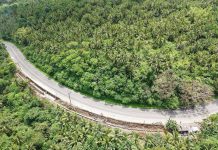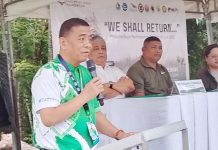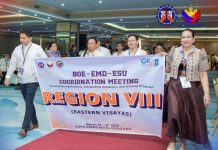PALO, Leyte – The province of Leyte has extended more than P1.7 million in cash awards during the “Pasidungog” 2018 awarding ceremonies to farmer organizations.
Governor Leopoldo Dominico L. Petilla, in an interview with Leyte Samar Daily Express, said that those honored and given the awards were the top 30 out of the 210 farmer associations organized and assisted by the province with total membership of 5,250 farmers from 41 towns and 1 city throughout the province.
The awarding, held on December 4 at the Leyte Academic Center, was attended by several mayors of the province led by Palo Mayor Remedios ‘Matin’ Petilla.
Also present was Vice Governor Carlo Loreto.
Petilla said that the total prizes from the province was P1,775,000 and Rep. Zajid Mangundadatu (2nd district of Maguindanao) also contributed P100,000 to the prizes.
Petilla said that the prize for the first place was P250,000; second P200,000; 3rd – P150,000; 4th – P100,000 while the 5th – P75,000.
He added that the 6th to 10th placers each received P50,000; the 11th to 20th placers each received P30,000 while the 21th 30th placers each received P20,000.
Petilla explained that Pasidungog 2018 is a way of recognizing or honoring the achievements and exemplary contributions of “our farmers who are involved in our poverty reduction and community resiliency efforts under the “Leyte EconoMICs Program.”
Petilla further explained that the Leyte EconoMICs Program is a poverty reduction agenda focusing on total human and economic development beginning in poor barangays.
It pushes the “More Income in the Countryside” (MIC) compact farming for high value vegetables and fruit crops training as its point of entry.
He said that more farmers are switching to high-value vegetables, egg-laying, tilapia production, hog fattening, vermicomposting, wing oyster project and seaweed farming since the program was implemented by his administration.
With the program implemented, eventually other livelihood interventions follow as part of the poverty alleviations of the province
The program also provides non-agricultural skills as well as programs in health and nutrition, values formation and education, social welfare, environment and disaster risk reduction and management and infrastructure support, he added.
(RESTITUTO A. CAYUBIT, LIZBETH ANN A. ABELLA)



